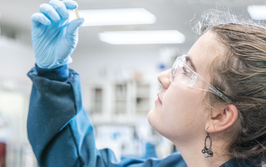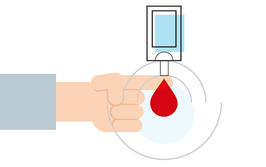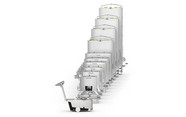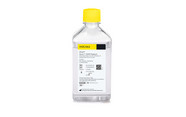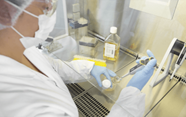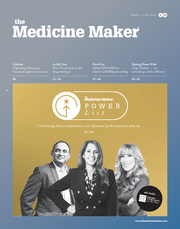Quality From the Ground Up
Six Sigma has the potential to deliver real cost savings by improving productivity and reducing defects, but making the change is challenging. Here are the essential steps to getting it right.
sponsored by Capsugel
Minimizing variability and defects in excipients, including empty capsules, has become an increasing priority for the pharma industry. Both the FDA and EMA have developed guidance based on the International Conference on Harmonization of Technical Requirements for Registration of Pharmaceuticals for Human Use (ICH) quality guidelines Q8, Q9, and Q10, which cover pharmaceutical development, quality risk management, and quality systems – and since 2011, both agencies have made efforts to harmonize evaluations of the portions of applications relevant to Quality by Design (QbD).
When developing QbD programs, manufacturers must take into account the impact of raw materials on the design space, right from the start of the design process. Obviously, raw materials, including empty hard capsules – with variability small enough to avoid any significant impact on critical product or process parameters – can help avoid complications in establishing design space and obtaining regulatory approval. In line with QbD, Capsugel further tightened controls in its manufacturing facilities to produce capsules with incredibly low defect levels. In 2014, as a result of that initiative, Capsugel introduced hard gelatin capsules under a new framing reference, Coni-Snap Sigma Series capsules, which are manufactured to Six Sigma quality levels. The industry standard limit, Acceptable Quality Level (AQL), can allow for hundreds of defects per million capsules, whereas Sigma Series defect levels can reach 3.4 parts per million (ppm).
Continuous quality improvement can deliver substantial cost savings. By reducing the number of variations in manufacturing processes, you reduce inherent risk, which in turn increases turnaround speeds, allowing products to make it to market faster – and defect free. For most manufacturers, Sigma Series capsules offer the potential to improve efficiency throughout the supply chain by minimizing delays and reducing time required for acceptance testing, processing, and release – all without any need for regulatory filings or changes to the encapsulation process. In addition, good quality can result in better patient compliance since patients will come to trust a company’s reputation for quality.
As our industry evolves, we must continually look for new levels of quality. We also recently moved from AQLs to Six Sigma quality levels for our Vcaps Plus HPMC capsules, in addition to our pharmaceutical gelatin capsules. We performed head-to-head trials at nearly 40 customer manufacturing facilities to test the flexibility and performance of our new capsules in filling machines under varying conditions – and found a significant increase in productivity across the board compared to previous generations. Qualitatively, the feedback we’ve received is that the level of quality allows companies to focus on assuring the robustness of other aspects of the encapsulation process.
Our Six Sigma processes follows the DMAIC methodology (define, measure, analyze, improve, control). The first step defines the critical quality attributes (CQAs) of product performance, which in the case of our capsules was consistent quality, Six Sigma defect levels, and superior performance on all high speed capsule filling machines. We also identified a series of control elements, including disintegration and absence of impurities, as well as superior micro, dimensional and weight consistency. After defining the specifications, we educated our raw materials suppliers on these requirements. The next step was process engineering. In any Six Sigma improvement plan, feedback during this time is crucial – it should be measured and any necessary corrective actions taken. Coni-Snap Sigma Series gelatin and Vcaps Plus HPMC capsules are now produced on redesigned and continuously evolving high-precision manufacturing and printing lines. Significant improvements in drying zone operations, with a move to high-speed machines and in-line processes, have reduced our product variations by eliminating handling steps. The capsule dipping pins were also optimized to create capsules that function well on high speed automatic filling machines and transfer systems. Finally, we developed a new process technology to ensure online electronic quality control of every single capsule, which heightened defect identification and allowed us to move to a superior quality level. We have some of the toughest product requirement specifications for manufactured capsules in the industry. The advantage is that we can pass that specificity on via a Certificate of Analysis which allows our customers to reduce incoming testing with peace of mind.
As part of continuous quality improvement, we think that customer feedback is invaluable. Reviewing our customers’ performance yield and feedback for each capsule, allows us to continually evaluate the potential for variation and then work to refine our process if the capsule can solve it. I think this process makes both customers and suppliers stronger; and in doing so, reduces variation across the entire supply chain – and ultimately, the industry as a whole.
Christen Davis is Director of Quality Assurance at Capsugel, Greenwood, South Carolina, USA.


